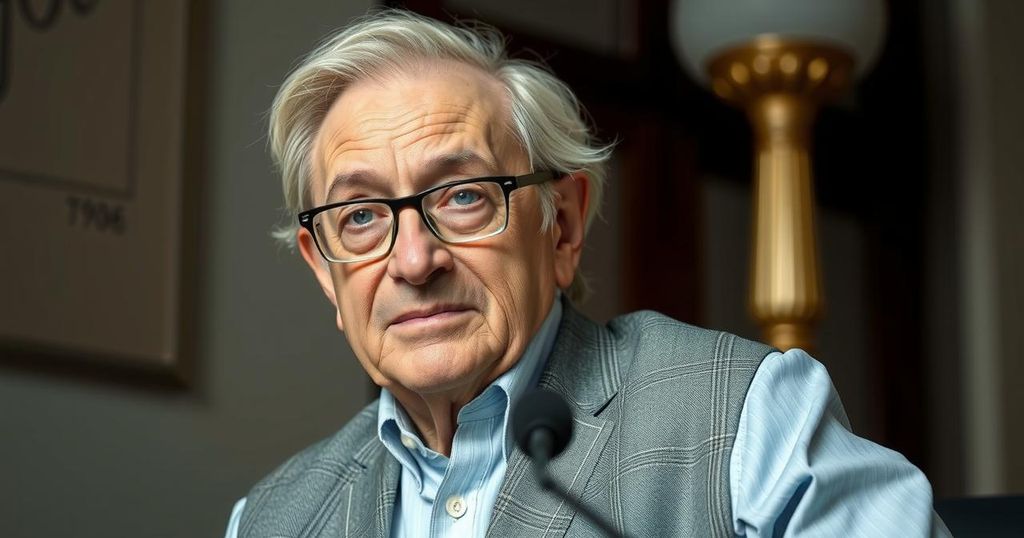George Soros, recently awarded the Medal of Freedom, is described as “old, rich, and dangerous” by Indian Minister S. Jaishankar. Criticized for his opposition to PM Modi and alleged support for an independent Kashmir, Soros is confronted with accusations from the BJP regarding his influence over the Congress Party and India’s democratic integrity.
George Soros, a prominent financier and philanthropist, is a highly contentious figure in both the United States and India. Recently awarded the Medal of Freedom by President Joe Biden, Soros faces significant criticism from various political quarters, including Indian External Affairs Minister S. Jaishankar, who labeled him as “old, rich and dangerous.” This criticism is largely due to Soros’s outspoken opposition to Prime Minister Narendra Modi and allegations of his support for an independent Kashmir through his organization, the Open Society Foundation.
In a notable statement during the Munich Security Conference in February 2023, Soros warned that the alleged ties between Modi and billionaire Gautam Adani could undermine Modi’s grip on the Indian federal government. Following these remarks, Union Minister Smriti Irani accused Soros of threatening India’s democratic framework and said his actions were self-serving. This sentiment reflects broader concerns among BJP officials about foreign influence in Indian politics.
Accusations against the Congress Party have also emerged, with BJP leaders claiming a connection between party leader Sonia Gandhi and Soros’s funding of organizations that advocate for Kashmir independence. During a parliamentary debate, BJP claimed that this association presents a national security issue, alleging that Gandhi’s connections with foreign entities could disrupt India’s sovereignty.
Additionally, BJP member Nishikant Dubey raised inquiries regarding the financial involvement of Soros in Congress initiatives, further intensifying the political discord. The BJP’s social media campaign has also erroneously depicted Soros in place of key historical figures, igniting outrage among Congress members, who assert that this act mocks India’s democratic icons and their legacy.
These developments highlight the intense scrutiny Soros faces in India and the geopolitical tensions associated with his philanthropic endeavors, illustrating the intersection of international finance, domestic politics, and national security concerns.
George Soros, known for his influential philanthropy and financial acumen, has built a complex relationship with various political entities around the globe. His recent recognition in the U.S. has reignited debates about his impact on international affairs, particularly in nations with emerging economies like India. Soros’s outspoken views on governmental policies frequently draw backlash, especially from nationalists who consider him a symbol of foreign interference in domestic governance. This ongoing controversy reflects larger themes of globalization, sovereignty, and the evolving landscape of political power in India.
In summary, George Soros stands as a polarizing figure within both U.S. and Indian political spheres. His recent accolades in the United States have triggered significant backlash in India, revealing the sensitivities surrounding foreign influence in national politics. Allegations linking him and the Congress Party to larger geopolitical agendas further complicate the discourse, underscoring ongoing debates over sovereignty and external funding in Indian democracy. The growing tensions highlight how international philanthropies can inadvertently provoke nationalist sentiments, leading to intensified political clashes.
Original Source: www.hindustantimes.com






